https://youtube.com/shorts/je0PlnhetAc?si=ephaiZWGwv6ITaKN
Theres a bible thread, there should be a Pagan/Norse thread.
If decoded in a particular way (read: correct) the Bible and the Norse/Pagan tradition have an astonishing amount of parallel/in-common. But this thread isn't about appealing to Christendom, it is about embracing the warrior spirit of our proud white traditions and heritage!
Odin does not respect the man who kneels, Odin honors the man who stands resolute in the face of Gods.
/ub/ - Überhengst
Becoming better
83 replies | 51 files | 35 UUIDs | Page 1
Might seem off, but from a dispositional/strategic standpoint, this applies.
Also, ffs wheres all tbe pagans?
[YouTube] The Mindset Shift That Will Make You Wealthy![]()
Also, ffs wheres all tbe pagans?
[YouTube] The Mindset Shift That Will Make You Wealthy
Hey OP! Not a pagan, but if you go through the archive you'll find threads about druids and various solstices. Tangentially related, but it might yield fruit until someone else scurries out of the woodwork.
I happen to have a vested interest in theology, and alongside Tibetan Buddhism and Christian mysticism, I am fascinated by Asartu. I believe that one should find parallels and contrasts in such studies.
I may not be the ideal audience, but we could generate discussion by tapping into scholarly resources and examining them.
I happen to have a vested interest in theology, and alongside Tibetan Buddhism and Christian mysticism, I am fascinated by Asartu. I believe that one should find parallels and contrasts in such studies.
I may not be the ideal audience, but we could generate discussion by tapping into scholarly resources and examining them.
>>8181
Theres no "ideal" audience, but I had hoped that the seemingly pagan periphery might take the stage. Its what the Patriarch represents.
Sidenote, how many "anti-patriatchy" bitches are witches who prescribe to a Divine Feminine and Divine Masculine, the latter of which,....
Nevermind,....
Theres no "ideal" audience, but I had hoped that the seemingly pagan periphery might take the stage. Its what the Patriarch represents.
Sidenote, how many "anti-patriatchy" bitches are witches who prescribe to a Divine Feminine and Divine Masculine, the latter of which,....
Nevermind,....
>>8186
At the end of the day "Pagan" amounts to polythiesm versus monotheism. Jung's work on the universal unconscious seems to support polytheism, while the appeal of monotheism is,... appreciable. While likely to get shit on for saying so, there is no "correct" answer, it comes down to (you) and what (you) are willing to accept, entertain, and likewise bring to manifestation, under whichever 'umbrella'.
Paganism tends to support the idea that there are a multitude of authorities to whom one can appeal, whereas Abrahamism asserts that there's only one authority (and perhaps a multitude of delegates, but that's more the catholic side of things). Fun fact, catholicism is Paganism in Abrahamic clothes Xp
At the end of the day "Pagan" amounts to polythiesm versus monotheism. Jung's work on the universal unconscious seems to support polytheism, while the appeal of monotheism is,... appreciable. While likely to get shit on for saying so, there is no "correct" answer, it comes down to (you) and what (you) are willing to accept, entertain, and likewise bring to manifestation, under whichever 'umbrella'.
Paganism tends to support the idea that there are a multitude of authorities to whom one can appeal, whereas Abrahamism asserts that there's only one authority (and perhaps a multitude of delegates, but that's more the catholic side of things). Fun fact, catholicism is Paganism in Abrahamic clothes Xp
>>8335
Destroying alters of lesser beings impacts those lesser beings.
Doing so disrupts the agenda of all lesser beings, that agenda is hostile to all people.
Breaking the chains of bondage is kind of the point.
The most impotent one to break is the one in people. Forceful eviction from the image of God allows for choice without external factors making choices near unfeasible.
Doing the impossible, breaking new ground, living to the fullest.
Making friends and family where by the standards of others could only be enemies.
Fighting on a front of love for one another.
I will say the faggot kind of tolerance and actively rolling over and shutting down of so called Christians is part of why the modern political landscape is so fucked. Not just the jewery, but also a subversion of Christ communities. Turned into mega-slop dispensers.
Fanatical intolerance can't stand up well. Look at the backstabbing culture of the SJW.
Destroying alters of lesser beings impacts those lesser beings.
Doing so disrupts the agenda of all lesser beings, that agenda is hostile to all people.
Breaking the chains of bondage is kind of the point.
The most impotent one to break is the one in people. Forceful eviction from the image of God allows for choice without external factors making choices near unfeasible.
Doing the impossible, breaking new ground, living to the fullest.
Making friends and family where by the standards of others could only be enemies.
Fighting on a front of love for one another.
I will say the faggot kind of tolerance and actively rolling over and shutting down of so called Christians is part of why the modern political landscape is so fucked. Not just the jewery, but also a subversion of Christ communities. Turned into mega-slop dispensers.
Fanatical intolerance can't stand up well. Look at the backstabbing culture of the SJW.
>>8335
Thats what all major religious bodies of "centralized authority" operate; there isn't one form of power that corrupts and another form of power that doesn't.
>>8336
What Christianity is experiencing now is what paganism and other traditions have been forced to experience. I don't disagree with your discontent, and I'm not celebrating that Christianity is next on the chopping block, I AM saying that my ancestors had a similar conversation with yours (in a philosophical sense). Not trying to drum up old feelings, but on a bloodline level "Yes, I know JUST what you're going through."
Thats what all major religious bodies of "centralized authority" operate; there isn't one form of power that corrupts and another form of power that doesn't.
>>8336
What Christianity is experiencing now is what paganism and other traditions have been forced to experience. I don't disagree with your discontent, and I'm not celebrating that Christianity is next on the chopping block, I AM saying that my ancestors had a similar conversation with yours (in a philosophical sense). Not trying to drum up old feelings, but on a bloodline level "Yes, I know JUST what you're going through."
>>8339
So glad you posted this!
Lupercalia is a roman tradition (my mexican just recently told me about it) where women run around, and men chase them with the freshly skinned,... well skin, of a goat and they whip their women with the bloody flesh. NGL, it sounds like more fun than flowers, chocolate, and dinners
So glad you posted this!
Lupercalia is a roman tradition (my mexican just recently told me about it) where women run around, and men chase them with the freshly skinned,... well skin, of a goat and they whip their women with the bloody flesh. NGL, it sounds like more fun than flowers, chocolate, and dinners
And as to anon who posted about turning this thread into comparative religion, thats a splendid idea in that theres room for the discussion while discussing paganism; Which isn't limited to Norse tradition obviously, that's just my greatest area of pagan expertise outside personal expertise (where I KNOW the names I gave 'them' likely aren't consistent with other sources), I'm just weak at Hindu, Shinto, Greco/Roman, etc.
But as alluded to in the Bible study thread, one would venture to guess that I have a greater breadth of the THEORY behind Paganism (with emphasis on the metaphysics) of any here.
>guffaws in heathen nerd-faggotry
But as alluded to in the Bible study thread, one would venture to guess that I have a greater breadth of the THEORY behind Paganism (with emphasis on the metaphysics) of any here.
>guffaws in heathen nerd-faggotry
The face they make when they find out you know the truth about how they demonized your Gods, and sold you a scam which defamed and culturally inverted all that you knew was good into a system to enslave you.
>>8359
Care to elaborate? Not criticizing - the hit and run shitpost method works - but this is intended to be a discussion thread so if you're not interested in discussion, even though I might agree with your actual position
Do fuck off
Care to elaborate? Not criticizing - the hit and run shitpost method works - but this is intended to be a discussion thread so if you're not interested in discussion, even though I might agree with your actual position
Do fuck off
>>8360
>Care to elaborate?
Sure.
With a slot for changing what you’re supposed to feeling guilty about, no one in the original White World was whining about being a loser, sinner, etc, that’s what Xturdism brought to the world.
>Do fuck off
Not nice.
>Care to elaborate?
Sure.
With a slot for changing what you’re supposed to feeling guilty about, no one in the original White World was whining about being a loser, sinner, etc, that’s what Xturdism brought to the world.
>Do fuck off
Not nice.
>>8362
Huh?
Dude, make your point on Paganism or whatever but don't try to guide my posting.
Stay on your lane.
Huh?
Dude, make your point on Paganism or whatever but don't try to guide my posting.
Stay on your lane.
>>8363
>stay in your lane
okay son
Stop, I know you want to be le ebin shitposter, but if you don't have an actual argument, do go fuck yourself. The best you can hope for is this.
>stay in your lane
okay son
Stop, I know you want to be le ebin shitposter, but if you don't have an actual argument, do go fuck yourself. The best you can hope for is this.
This thread is for a discussion of Paganism or comparative religion. Gay-ass non-committant Crust-posts (cuz they aren't Christ-posts) are a derailment.
>>8368
You say that, but do you have any constructive comments about Paganism? Or are you as you appear, a troll with impulse control issuese?
You say that, but do you have any constructive comments about Paganism? Or are you as you appear, a troll with impulse control issuese?
>>8369
I'm detecting the same hostility and threats conducing to banning galore I experienced in this board for years.
Either the mod is removed or discussion on /mlpol/ will continue its down spiral.
Bye.
I'm detecting the same hostility and threats conducing to banning galore I experienced in this board for years.
Either the mod is removed or discussion on /mlpol/ will continue its down spiral.
Bye.
>>8370
While you stew on that, consider that you have you yet to sincerely engage the subject topic of the thread. By virtue, you're acting in bad faith. So, stop.
While you stew on that, consider that you have you yet to sincerely engage the subject topic of the thread. By virtue, you're acting in bad faith. So, stop.
>>8375
Yes, we can criticize christendom all that is desired.
The intent ITT (poorly elucidated, OP IS a faggot) is to exalt paganism and all if offers.
Yes, we can criticize christendom all that is desired.
The intent ITT (poorly elucidated, OP IS a faggot) is to exalt paganism and all if offers.
>>8375
>assumptions of Christianity
Well, let's go to the source and find out. Shall we?
Also my point is to try to inform (I very much doubt about any prospect of success) the Christian poners that they are betting on the wrong horse. Christianity is a jewish psyop.
>assumptions of Christianity
Well, let's go to the source and find out. Shall we?
Also my point is to try to inform (I very much doubt about any prospect of success) the Christian poners that they are betting on the wrong horse. Christianity is a jewish psyop.
Don't make me slap the taste from your mouth. This isn't the "Anti christian" thread, it's the PAGAN thread. Fuck off if you're here to shit on Christianity, this is about exalting paganism
>>8162
>the Bible and the Norse/Pagan tradition have an astonishing amount of parallel/in-common.
because the bible is a jewish creation that plagiarizes other cultures.
>the Bible and the Norse/Pagan tradition have an astonishing amount of parallel/in-common.
because the bible is a jewish creation that plagiarizes other cultures.
An excerpt from a jew gloating on the Whites' stupidity and downfall of paganism. Like he is talking to niggers, but with white skin.
To think about it.
To think about it.
From twatter
>Despite the ongoing legal warfare from the Greek church and authorities, the new temple of Zeus and Pan in Kalliani has been completed and inaugurated. Evangelos Bexis has been ordered to appear in court, and intends to defend pagans’ rights. Hail the Gods!
>Despite the ongoing legal warfare from the Greek church and authorities, the new temple of Zeus and Pan in Kalliani has been completed and inaugurated. Evangelos Bexis has been ordered to appear in court, and intends to defend pagans’ rights. Hail the Gods!

Point being, if you want to ignorantly stereotype, turn about is fair play. Shall we judge all christians by the actions of a minority? Or shall we - as intended - speak of the blessings of paganism; blessings that at LEAST the CATHOLICS had the good sense (and more likely, scriptural competence) to maintain with the saints and angels.
>>8425
>Point being
Shitting on the Pagan thread is an invitation to shit on the christian one.
I hope this obvious fact will sink in into the zealots' brain.
>Point being
Shitting on the Pagan thread is an invitation to shit on the christian one.
I hope this obvious fact will sink in into the zealots' brain.
>>8426
No, you damn idiot. If there's to be a "shitting on other religions" thread, it should be so named. So anyone interested in that, go do that there.
No, you damn idiot. If there's to be a "shitting on other religions" thread, it should be so named. So anyone interested in that, go do that there.
Horsepussy protocol mark 2, charging
National Socialist book describes Christian education as “Jewish fairy tales.” “We had been baptized Christian like everybody else, because propriety and customs demanded it. In the fourth class, we recited the Jewish fairy-tales just like the teacher demanded. But if in German class we heard the Siegfried saga, then our eyes glistened, our little hearts raced and often stood still. And many a one furtively wiped away a tear with his sleeve, when fierce Hagen slew brave Siegfried. Siegfried, yes, that was our hero!”
Source: Gott und Volk: Soldatisches Bekenntnis, Theodor Fritsch, Pg 8.
Source: Gott und Volk: Soldatisches Bekenntnis, Theodor Fritsch, Pg 8.
Time to start naming Aryan kids TITUS again.
>>8378
Literally none of that shit admits Jesus was a jew. Not Jesus Christ Himself admits that and you will find absolutely no scripture at all to abuse to back up your faggoty bullshit
Literally none of that shit admits Jesus was a jew. Not Jesus Christ Himself admits that and you will find absolutely no scripture at all to abuse to back up your faggoty bullshit
Fun Fact. In Ireland/Wales, the Celtic Kings would fuck a white mare during their coronation to prove they are in fact the king. I welcome a return to this practice,
>>8335
>The ancient Goths tolerated – as Ignaz von Döllinger proves – both the Catholic as well as other beliefs, and showed a faith felt to be spiritually necessary as such. This toleration vanished everywhere when the spirit of Bonifacius and the compulsory law of love triumphed. In this connection, one should compare the conduct of the heathen Frisian Duke Redbad [d. 719 AD] in contrast to the Roman will to persecution. He remained true to the belief of his forefathers, but nevertheless did not persecute the Christian preachers. When several particularly zealous Christian missionaries were brought before him, and one of them, despite the Duke’s resultant anger, still courageously represented the new faith, the heathen Duke said: „I see that you do not fear our threats and that your words are as your works,” and sent the missionaries back with all honors to Pippin, the Duke of the Franks. So reports Alcuin. In nobility of soul, this pagan Frisian Duke stands far above the representative of God in Rome, who made great efforts to banish this inner freedom and respect from the world.
Tolerance of things hostile to your values and way of life is the absolute worst thing, the most lethal poison there is. The pagans got pulverized by the Christians because they had it, and the Christians in turn got pulverized once they acquired the same type of tolerance.
>The ancient Goths tolerated – as Ignaz von Döllinger proves – both the Catholic as well as other beliefs, and showed a faith felt to be spiritually necessary as such. This toleration vanished everywhere when the spirit of Bonifacius and the compulsory law of love triumphed. In this connection, one should compare the conduct of the heathen Frisian Duke Redbad [d. 719 AD] in contrast to the Roman will to persecution. He remained true to the belief of his forefathers, but nevertheless did not persecute the Christian preachers. When several particularly zealous Christian missionaries were brought before him, and one of them, despite the Duke’s resultant anger, still courageously represented the new faith, the heathen Duke said: „I see that you do not fear our threats and that your words are as your works,” and sent the missionaries back with all honors to Pippin, the Duke of the Franks. So reports Alcuin. In nobility of soul, this pagan Frisian Duke stands far above the representative of God in Rome, who made great efforts to banish this inner freedom and respect from the world.
Tolerance of things hostile to your values and way of life is the absolute worst thing, the most lethal poison there is. The pagans got pulverized by the Christians because they had it, and the Christians in turn got pulverized once they acquired the same type of tolerance.
any of you guys ever been to a pagan camp?
>>8575
You're a faggot. All men cannot receive this saying, save they to whom it is given.
19 is about unfaithfulness to spouces and if a man can't or won't have a spouce. Children is the model of unadulterated purity. It's followed by the rich son who can't be perfect in all ways. Whatever is forsaken up for His name's sake shall receive a hundred fold and shall inherit everlasting life.
Matthew 19:12 KJV For there are some eunuchs, which were so born from their mother's womb: and there be eunuchs, which were made eunuchs of men: and there be eunuchs, which have made themselves eunuchs for the kingdom of heaven's sake. He that is able to receive it, let him receive it.
You're a faggot. All men cannot receive this saying, save they to whom it is given.
19 is about unfaithfulness to spouces and if a man can't or won't have a spouce. Children is the model of unadulterated purity. It's followed by the rich son who can't be perfect in all ways. Whatever is forsaken up for His name's sake shall receive a hundred fold and shall inherit everlasting life.
Matthew 19:12 KJV For there are some eunuchs, which were so born from their mother's womb: and there be eunuchs, which were made eunuchs of men: and there be eunuchs, which have made themselves eunuchs for the kingdom of heaven's sake. He that is able to receive it, let him receive it.
>>8583
*curtsies*
Both mine. I'm happy to participate in a CONSTRUCTIVE criticism of Abrahamism in general, or Christianity in particular, but we're not going to play along with any silly childishness. Christianity in particular AND Abrahamism in general have done loads of good for the world, and there will be no throwing the baby out with the bath-water.
*curtsies*
Both mine. I'm happy to participate in a CONSTRUCTIVE criticism of Abrahamism in general, or Christianity in particular, but we're not going to play along with any silly childishness. Christianity in particular AND Abrahamism in general have done loads of good for the world, and there will be no throwing the baby out with the bath-water.
Can you spot the difference?
White people will win. How do I know? Because White People are Zeus’ chosen people, and Zeus is ruler of heaven and earth.
Fastest growing faith in the US… With probably the youngest demographics of any US religion.
>>8610
*sigh* of course wicca is still so much more popular than other witchcraft practices enough that statisticians just lump the rest into "pagans and wiccans." Truely the ubuntu of witchcraft.
Well if my Wicca phase is anything to go by most Wiccans don't know that it's a specific practice and not a blanket term for witchcraft like the youtubers would tell ya. If it gets paganism to replace (((abrahamism))) then so be it.
*sigh* of course wicca is still so much more popular than other witchcraft practices enough that statisticians just lump the rest into "pagans and wiccans." Truely the ubuntu of witchcraft.
Well if my Wicca phase is anything to go by most Wiccans don't know that it's a specific practice and not a blanket term for witchcraft like the youtubers would tell ya. If it gets paganism to replace (((abrahamism))) then so be it.
Which ever religion allows me to have sex with mares without eternal damnation is my religion.
>>8162
Although I am Iranian and these matters may not directly concern me, but I would like to share a thought with you:
Throughout history, peoples of Aryan roots have rarely changed their beliefs by force. Whether in the northern lands of Europe or on the Iranian plateau, these peoples, when embracing a new faith, were often either disillusioned by the corruption of their old traditions or found profound parallels between their ancient beliefs and the new ones.
Let me illustrate this with an example from our own history:
During the arab invasion of Iran, despite fierce resistance, the arabs ultimately prevailed due to the internal weakness of the Sassanid Empire. Yet the Iranians did not accept islam by the sword. Over generations, through gradual acquaintance and by recognizing deep similarities between Zoroastrianism and islamic teachings, many willingly embraced islam. Additionally, the corruption and decay that had crept into late Zoroastrianism made this transition more natural for some.
An even more striking example lies in the Mongol invasions. Despite the overwhelming brutality, Iranians never adopted Mongol shamanism. Instead, over time, the Mongols themselves converted to islam and were profoundly influenced by Iranian culture.
Thus, if the northern peoples turned to christianity at some point in history, it is hard to believe it was purely by force. Considering the proud warrior spirit of Aryan people, it is far more likely that they either grew weary of their old ways or found meaningful resonance between the old traditions and the christian message.
Therefore, instead of opposing christianity, perhaps it would be wiser to highlight the similarities between the ancient traditions and christianity. Otherwise, one might inadvertently suggest that your ancestors abandoned Paganism out of mere defeat, rather than by recognizing profound commonalities, which would not do justice to the proud and resilient spirit of Aryan peoples.
Although I am Iranian and these matters may not directly concern me, but I would like to share a thought with you:
Throughout history, peoples of Aryan roots have rarely changed their beliefs by force. Whether in the northern lands of Europe or on the Iranian plateau, these peoples, when embracing a new faith, were often either disillusioned by the corruption of their old traditions or found profound parallels between their ancient beliefs and the new ones.
Let me illustrate this with an example from our own history:
During the arab invasion of Iran, despite fierce resistance, the arabs ultimately prevailed due to the internal weakness of the Sassanid Empire. Yet the Iranians did not accept islam by the sword. Over generations, through gradual acquaintance and by recognizing deep similarities between Zoroastrianism and islamic teachings, many willingly embraced islam. Additionally, the corruption and decay that had crept into late Zoroastrianism made this transition more natural for some.
An even more striking example lies in the Mongol invasions. Despite the overwhelming brutality, Iranians never adopted Mongol shamanism. Instead, over time, the Mongols themselves converted to islam and were profoundly influenced by Iranian culture.
Thus, if the northern peoples turned to christianity at some point in history, it is hard to believe it was purely by force. Considering the proud warrior spirit of Aryan people, it is far more likely that they either grew weary of their old ways or found meaningful resonance between the old traditions and the christian message.
Therefore, instead of opposing christianity, perhaps it would be wiser to highlight the similarities between the ancient traditions and christianity. Otherwise, one might inadvertently suggest that your ancestors abandoned Paganism out of mere defeat, rather than by recognizing profound commonalities, which would not do justice to the proud and resilient spirit of Aryan peoples.
>>8626
it just occurred to me that horses don't do any movement that could be associated with facesitting
sorry anon
it just occurred to me that horses don't do any movement that could be associated with facesitting
sorry anon
Reading A History of Roman Religion (1938).
>>8775
>Paganism does not deny the "One True" God. Pagans aren't saying "There isn't one, there's MANY Gods!".
This isn't really accurate either. There have been many pagan religions throughout history, and not all of them were polytheistic. There were monotheistic pagan religions too.
>Pagans observe that the Creator is - if you look closer - comprised of many facets and capacities, all divine and infinite in their respective capacities.
This mindset isn't even necessarily pagan either. What you describe is the outlook of Hinduism, for example.
>The sad reality is, everyone is simply arguing about perspective and terminology.
Well, it appears that we do not agree on the definition of the term "pagan". To me, pagan means:
>(especially in historical contexts) a person holding religious beliefs other than those of the main or recognized religions
Under this definition, paganism has no single religious outlook.
>Paganism does not deny the "One True" God. Pagans aren't saying "There isn't one, there's MANY Gods!".
This isn't really accurate either. There have been many pagan religions throughout history, and not all of them were polytheistic. There were monotheistic pagan religions too.
>Pagans observe that the Creator is - if you look closer - comprised of many facets and capacities, all divine and infinite in their respective capacities.
This mindset isn't even necessarily pagan either. What you describe is the outlook of Hinduism, for example.
>The sad reality is, everyone is simply arguing about perspective and terminology.
Well, it appears that we do not agree on the definition of the term "pagan". To me, pagan means:
>(especially in historical contexts) a person holding religious beliefs other than those of the main or recognized religions
Under this definition, paganism has no single religious outlook.
>>8775
On another note, it also really depends what you mean by "god". The concept of god, and the words we use to refer to it, vary from faith to faith.
The reason why monotheists say that polytheistic pagans deny the one true god is because the concept of God as defined by Christians, Muslims and Sikhs (for Zoroastrians and Jews it's slightly different, but similar) is incompatible with polytheism, because being singular, almighty divine entity of uncontested power and wisdom is part of the definition of God to monotheists. If you merely count their God as a collection of countless divine entities, you deny the definition and nature of their God.
On another note, it also really depends what you mean by "god". The concept of god, and the words we use to refer to it, vary from faith to faith.
The reason why monotheists say that polytheistic pagans deny the one true god is because the concept of God as defined by Christians, Muslims and Sikhs (for Zoroastrians and Jews it's slightly different, but similar) is incompatible with polytheism, because being singular, almighty divine entity of uncontested power and wisdom is part of the definition of God to monotheists. If you merely count their God as a collection of countless divine entities, you deny the definition and nature of their God.
>>8780
>the average Pagan because they haven't figured it out
Or maybe your single personal opinion doesn't represent paganism.
>What Christians call God, the greeks called Olympus
Olympus isn't a divine entity. It's one of the few things in Greek myth that isn't personified. The pantheon of Olympus is a family of divine beings, many with separate origins.
>they observed the workings of Olympus as having a multitude of operant parts in the same way the body has organs and systems
This is closer to Hinduism, that sees the gods all as aspects of a single divine that encompasses the universe.
>And yes, you won't like hearing this, but Zoroastrians and Jews are closer to the truth, at least IMO
Elaborate.
Jews see God as their monotheistic spirit of their people, which is why they are so self-centered.
>the average Pagan because they haven't figured it out
Or maybe your single personal opinion doesn't represent paganism.
>What Christians call God, the greeks called Olympus
Olympus isn't a divine entity. It's one of the few things in Greek myth that isn't personified. The pantheon of Olympus is a family of divine beings, many with separate origins.
>they observed the workings of Olympus as having a multitude of operant parts in the same way the body has organs and systems
This is closer to Hinduism, that sees the gods all as aspects of a single divine that encompasses the universe.
>And yes, you won't like hearing this, but Zoroastrians and Jews are closer to the truth, at least IMO
Elaborate.
Jews see God as their monotheistic spirit of their people, which is why they are so self-centered.
>>8782
>Source
What source?
>there's alot more agreement among polytheism than you might be aware of
That's mostly because Hellenism and Hinduism are rooted in Vedic folklore. Other polytheistic religions are quite different.
>What you said is technically true, but it certainly is not what a Jew would tell you if you asked
I learned this information from a Jew. I take it with a grain of salt, because Jews lie by default.
>position on Paganism in it's MANY forms
Define "paganism", as you interpret it.
>outside of cults
Define "cult".
>I'm not actually Pagan
I gathered that much.
>I just use it as a simplification
That doesn't really do it anymore justice for those trying to learn about pagan religions.
>Just because a religion is wrong on several levels doesn't mean they're wrong across the board.
Kek, even Scientology got some things right that 'no one else' did
A broken clock is right twice a day. That doesn't make it worth keeping.
>Source
What source?
>there's alot more agreement among polytheism than you might be aware of
That's mostly because Hellenism and Hinduism are rooted in Vedic folklore. Other polytheistic religions are quite different.
>What you said is technically true, but it certainly is not what a Jew would tell you if you asked
I learned this information from a Jew. I take it with a grain of salt, because Jews lie by default.
>position on Paganism in it's MANY forms
Define "paganism", as you interpret it.
>outside of cults
Define "cult".
>I'm not actually Pagan
I gathered that much.
>I just use it as a simplification
That doesn't really do it anymore justice for those trying to learn about pagan religions.
>Just because a religion is wrong on several levels doesn't mean they're wrong across the board.
Kek, even Scientology got some things right that 'no one else' did
A broken clock is right twice a day. That doesn't make it worth keeping.
[Last 50 Posts] [Last 100 Posts] [Last 200 Posts]
83 replies | 51 files | 35 UUIDs | Page 1
[Add to Thread Watcher]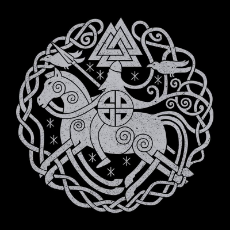










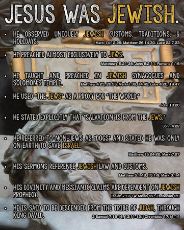





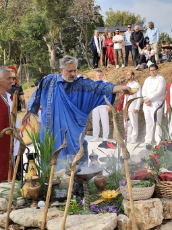




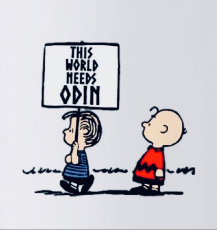









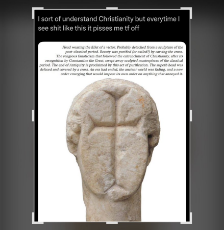





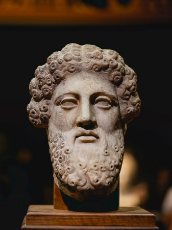








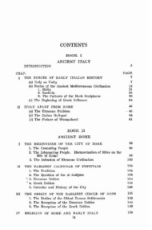
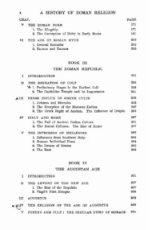

 Ex: Type :littlepip: to add Littlepip
Ex: Type :littlepip: to add Littlepip  Ex: Type :eqg-rarity: to add EqG Rarity
Ex: Type :eqg-rarity: to add EqG Rarity 